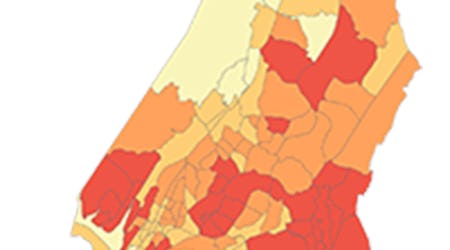
Open data in Hamilton County
An open data policy would improve transparency, accountability and efficiency in Hamilton County’s government.
Transparency, accountability, efficiency — these are core values that should drive public service. A robust open data policy is one tool governments are increasingly adopting to meet them.
Open data offers many benefits:
The government of Hamilton County, Tennessee, does not have a clear open data policy in place. It publishes some data and records on its website, but there is room for improvement.
Metro Ideas Project interviewed county officials and representatives of cities and counties that have implemented open data policies.
Our open data toolkit includes three case studies looking at how other local governments have transitioned to open data policies, practical applications for open data, and guidelines to help county officials get started on this important work.

An open data policy would improve transparency, accountability and efficiency in Hamilton County’s government.

Baton Rouge took open data lessons from other cities to heart.

San Mateo County takes open data seriously.

Nashville shows how to sustain an open data initiative after an election.

Converting restaurant inspection reports to open data would increase public accountability and lead to more efficient government.

Our app demonstrates how tax data can be used to visualize historical property trends by neighborhood.

This inventory is a starting point for Hamilton County officials who want to identify potential open datasets.
This comprehensive guide provides common adoption practices and implementation steps.
The Sunlight Foundation has extensive guidelines for identifying datasets to release and navigating private vendors.
Three municipal officials talk about next steps for open government data after getting a portal online.
Richard Florida argues that “nuanced human reasoning” is needed to make big data work for cities.
Metro Ideas Project prepared this toolkit during the summer and fall of 2016.